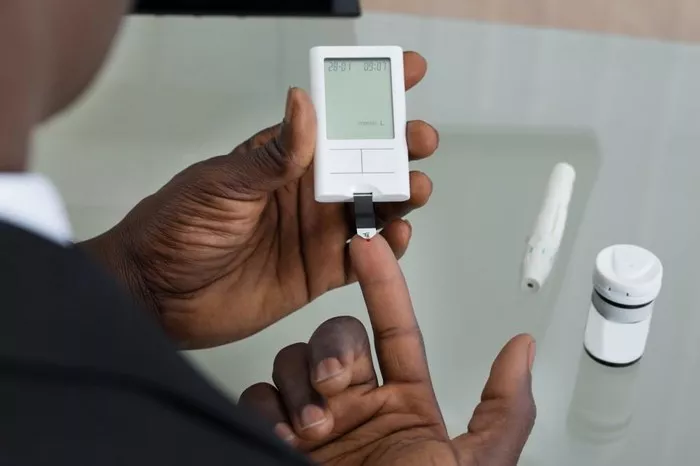Pregnancy is a miraculous journey marked by profound changes in a woman’s body, including fluctuations in hormone levels and metabolic processes. For some expectant mothers, this transition may include challenges in managing blood sugar levels, leading to a condition known as gestational diabetes. In this article, we delve into the intricacies of gestational diabetes, its implications for maternal and fetal health, and effective strategies for managing this condition.
Importance of Insulin During Pregnancy
Insulin plays a pivotal role in regulating blood sugar levels in the body, ensuring that cells receive the energy they need to function optimally. During pregnancy, the body undergoes significant hormonal changes that can affect insulin sensitivity and secretion. Insulin resistance, a condition in which cells become less responsive to insulin, is a common occurrence during pregnancy, particularly in the second and third trimesters.
Maintaining stable blood sugar levels during pregnancy is paramount for the health of both the mother and the baby. Insulin facilitates the transport of glucose from the bloodstream into cells, where it can be utilized for energy production. When blood sugar levels are poorly controlled, the excess glucose circulating in the bloodstream can cross the placenta and reach the developing fetus. This can lead to various complications, including macrosomia (excessive fetal growth), birth trauma, and respiratory distress syndrome in newborns.
Gestational Diabetes Overview
Gestational diabetes mellitus (GDM) is a form of diabetes that develops during pregnancy, typically in the second or third trimester. It is characterized by elevated blood sugar levels that exceed normal ranges but are not as high as those seen in individuals with type 1 or type 2 diabetes. The exact cause of gestational diabetes is not fully understood, but it is believed to result from a combination of hormonal changes, genetic predisposition, and lifestyle factors.
Factors that contribute to the development of gestational diabetes include insulin resistance, whereby the body’s cells become less responsive to insulin, and impaired insulin secretion by the pancreas. Other risk factors for gestational diabetes include advanced maternal age, obesity, a family history of diabetes, and certain ethnic backgrounds, such as Hispanic, African American, and Asian.
Blood Sugar Monitoring
Monitoring blood sugar levels regularly is essential for pregnant individuals, especially those with gestational diabetes. Regular blood sugar monitoring allows expectant mothers to track their glucose levels and make timely adjustments to their diet, exercise, and medication regimen as needed.
Pregnant individuals can monitor their blood sugar levels at home using glucose meters, handheld devices that measure glucose levels in a small drop of blood obtained by pricking the finger with a lancet. Healthcare providers typically recommend checking blood sugar levels before meals and snacks, as well as one to two hours after meals, to assess how food intake affects blood sugar levels throughout the day.
Threshold for Insulin Requirement
The decision to initiate insulin therapy during pregnancy is based on several factors, including blood sugar levels, dietary and lifestyle modifications, and the overall health of the mother and the baby. Insulin therapy may be recommended when blood sugar levels remain consistently elevated despite efforts to control them through diet and exercise.
The threshold for insulin requirement varies depending on individual circumstances and medical guidelines. In general, insulin therapy is initiated when fasting blood sugar levels consistently exceed 95 mg/dL or when postprandial (after-meal) blood sugar levels consistently exceed 140 mg/dL. However, these thresholds may be adjusted based on factors such as maternal age, gestational age, and the presence of other medical conditions.
Treatment Options
Managing gestational diabetes involves a multifaceted approach aimed at controlling blood sugar levels and minimizing the risk of complications for both the mother and the baby. Treatment options may include:
Dietary Changes: Adopting a well-balanced diet rich in whole grains, fruits, vegetables, lean proteins, and healthy fats can help stabilize blood sugar levels and promote overall health during pregnancy. Healthcare providers may recommend working with a registered dietitian to develop a personalized meal plan tailored to individual nutritional needs and glucose targets.
Physical Activity: Regular exercise is an integral component of diabetes management, as it helps improve insulin sensitivity and promote weight management. Pregnant individuals with gestational diabetes are encouraged to engage in moderate-intensity aerobic exercise, such as brisk walking, swimming, or prenatal yoga, for at least 30 minutes most days of the week, as long as it is approved by their healthcare provider.
Insulin Therapy: Insulin therapy may be necessary for some pregnant individuals with gestational diabetes to achieve optimal blood sugar control. Insulin is typically administered via subcutaneous injections and may be prescribed as a short-acting insulin to be taken before meals or as a long-acting insulin to provide basal coverage throughout the day.
Potential Risks of Untreated Gestational Diabetes
Untreated gestational diabetes can pose serious risks to both the mother and the baby. High blood sugar levels during pregnancy can increase the risk of complications such as:
Macrosomia: Excessive fetal growth, leading to a higher likelihood of delivery complications, such as shoulder dystocia (difficulty delivering the baby’s shoulders).
Preeclampsia: A pregnancy-related condition characterized by high blood pressure and signs of damage to other organ systems, such as the kidneys and liver.
Birth Complications: Increased risk of cesarean delivery, birth trauma, and neonatal hypoglycemia (low blood sugar levels) in newborns.
Proactive management of gestational diabetes is essential to minimize these risks and ensure a healthy pregnancy outcome. This may involve regular prenatal care, monitoring blood sugar levels, adhering to dietary and lifestyle recommendations, and, if necessary, initiating insulin therapy under the guidance of a healthcare provider.
Conclusion
Gestational diabetes presents unique challenges for pregnant individuals, but with proper management and support, it is possible to achieve good outcomes for both mother and baby. By understanding the importance of insulin in regulating blood sugar levels during pregnancy, monitoring blood sugar levels regularly, and implementing lifestyle modifications and treatment strategies as needed, pregnant individuals can take proactive steps to ensure a healthy pregnancy and childbirth experience. Working closely with healthcare providers to develop a personalized treatment plan is essential for optimizing maternal and fetal health outcomes.
Related Topics:
What Can I Eat Immediately To Lower My Blood Sugar?


























